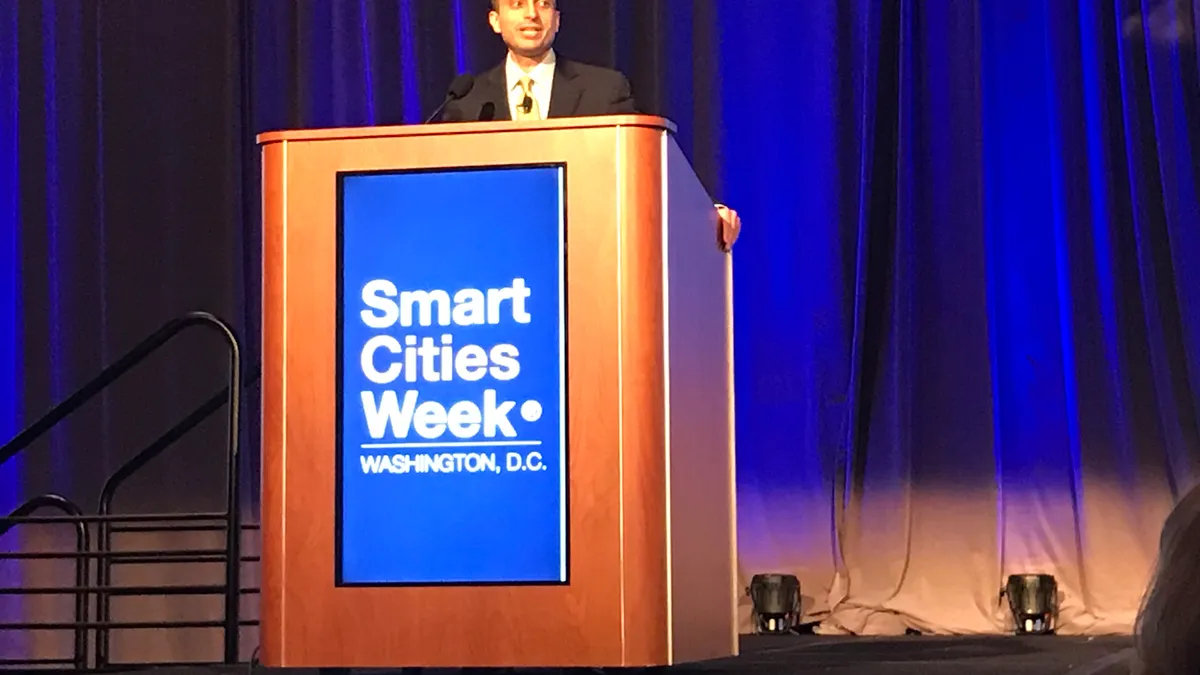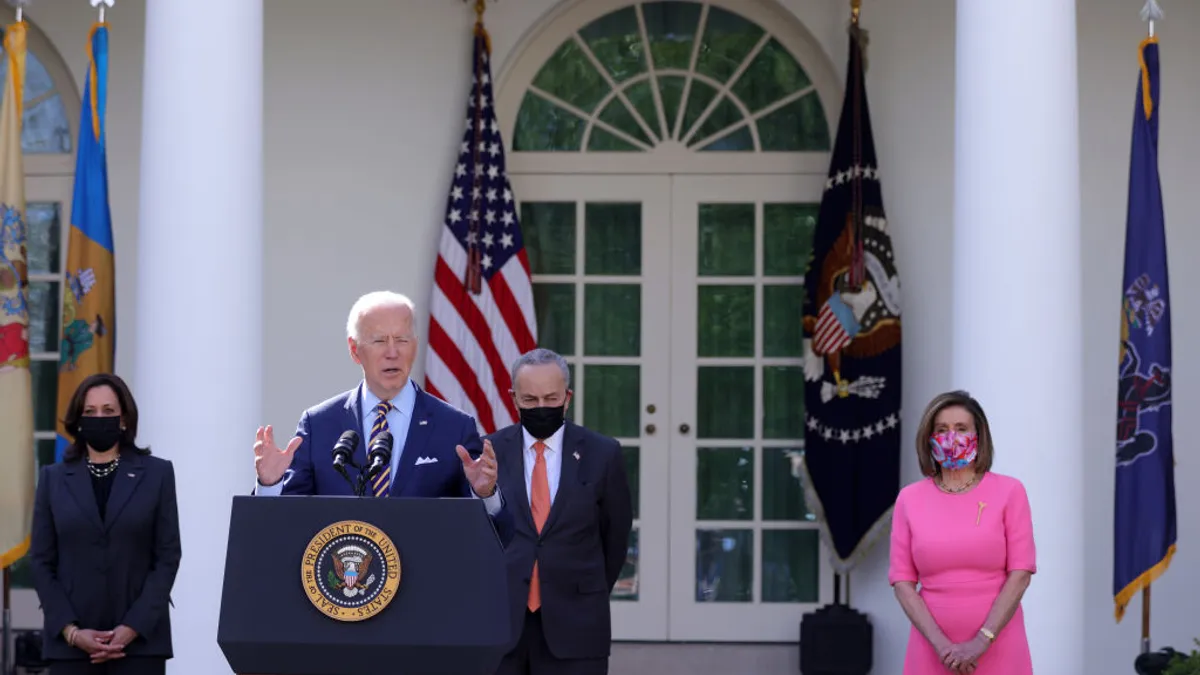Dive Brief:
- During an opening keynote session at Smart Cities Week in Washington, DC, Erwin Gianchandani, a deputy assistant director at the National Science Foundation (NSF), announced the foundation would invest approximately $22.6 million for FY18 in its Smart and Connected Communities program to support more than 13 university-led smart city projects. Gianchandani said the foundation has a comparable investment plan for FY19.
- NSF also announced the eight winners of its Wireless Innovation for a Networked Society (WINS) Challenges, which are prize challenges to address internet connectivity in disaster-struck communities and in rural areas. The winners will receive a collective $1.6 million.
- In addition, Gianchandani unveiled the launch of the NSF's Civic Innovation Challenge, in partnership with MetroLab and Smart Cities Lab, which aims to "leverage data, technology, and social science to address complex community challenges" and encourage cross-community collaboration.
Dive Insight:
Gianchandani explained that the Smart and Connected Communities program, which brings together university researchers and students with cities and communities to implement inspired smart initiatives, has been an important effort for integrating scientific analysis and technical disciplines into such solutions. He said the three key principles of the program are integrative research, a "deep and meaningful community engagement" and near- and long-term scientific and community impact.
Establishing community-university partnerships is a priority for NSF — particularly the "community" half of the partnership equation. In an April interview with Smart Cities Dive, Jim Kurose, assistant director for the NSF's Directorate of Computer and Information Science and Engineering (CISE), explained how it's important to recognize "smart communities," as not everyone lives in a city.
"It's interesting to me to hear about 'smart cities,' as there’s smart cities and smart communities," he said at the time. "...We really need to think about rural communities, border communities as well as cities, then there’s equity in access issues in all those. I think the fact that we focus on communities rather than just cities tries to make equity access fairness, if you will, part of what we do."
The "university" half of the partnership equation is where NSF sees the opportunity to really leverage collaborative research applications to advance innovations and improve quality of life. Gianchandani highlighted institutions such as University of Michigan, which is working with the city of Ann Arbor, MI to develop a sensor-based control system to improve stormwater management and water quality. Other notable projects in NSF's portfolio include collaborations with SUNY at Albany, University of Notre Dame and University of Connecticut.











